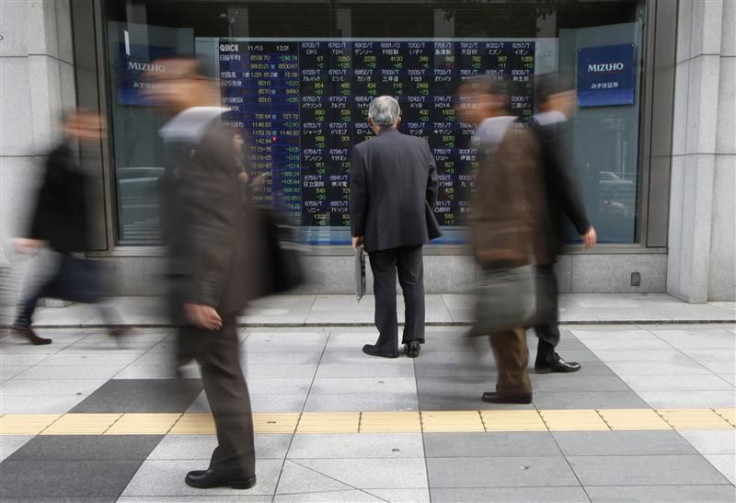Global Stocks Hit 6-Week Low

World stocks hit their lowest in six weeks Wednesday and crude oil prices fell after manufacturing in Germany contracted for a second straight month in November, and at a faster rate, as export demand slumped.
Safe-haven U.S. Treasuries, German Bunds and gold were in demand as investors fled riskier assets.
The souffle we hoped we were going to eat is collapsing in front of us. We had hoped for a soft landing in China, better figures out of the United States and progress in Europe, Justin Urquhart Stewart, director at Seven Investment Management, said.
China's November factory activity shrank the most in 32 months, reigniting worries of an abrupt slowdown in the world's second largest economy.
The slump in China's factory sector came a day after the number one economy, the United States, cut its third-quarter growth figure.
The euro zone debt crisis continued to sap investor confidence, hitting the euro.
The euro was down 0.4 percent at $1.3456 after a newspaper said France, Belgium and Luxembourg were in talks on how to provide temporary state debt guarantees for failed financial group Dexia, stirring worries that France will face a further fiscal burden.
The dollar, which has been benefiting from recent investor unease, rose 0.3 percent against a basket of major currencies <.DXY> after hitting its highest in six weeks.
Dexia and the Chinese flash PMI are the two factors that are driving a risk-off trade, said Jeremy Stretch, head of currency strategy at CIBC World Markets.
Euro flash PMIs are not looking good and this will not help matter either. Model funds are looking to buy dollars and investors will be looking to sell into any rebound in the euro.
World stocks measured by the MSCI All-Country World Index <.MIWD00000PUS> fell 0.5 percent to their lowest level since Oct. 10.
The global gauge was down for the eighth straight session, its longest losing run since late July and early August when the two-year-old euro zone debt turmoil spread to Italy. It has lost 13.6 percent this year.
Europe's FTSEurofirst 300 <.FTEU3> dropped 0.4 percent, while Japan's Nikkei average <.N225> eased 0.4 percent.
Brent crude dropped 0.7 percent to trade just above $108 a barrel, while copper prices slipped 0.3 percent to above $7,300 a tonne.
Gold added 0.1 percent after rising 1.1 percent the previous session. The precious metal has risen nearly 20 percent this year, on track for its 11th straight year of gains.
(Additional reporting by Brian Gorman and Anirban Nag in London)
© Copyright Thomson Reuters {{Year}}. All rights reserved.





















